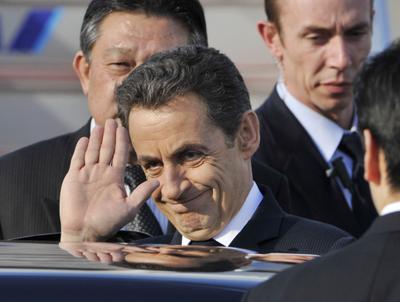The traumatic effects on survivors are most significant for the children and young people orphaned or displaced. Children’s charities already say that early return to school helps survivors cope. Some can be relocated to other areas of Japan but this is an opportunity to expand student exchanges with Australia. Our schools and universities have a long, successful history of exchanges with Japan but in recent years support for these programs has waned so we risk a decline in the depth of student experience (and a growing generation gap for top-level expertise on Japan). We could now look at extending educational cooperation in new ways. There will be delays in the start of Japan’s academic year as schools and college facilities have been destroyed in affected areas. A rapid program of accelerated visas for student applications, combined with coordination among our educational institutions to offer places, could build a new generation of people-to-people links that will last a lifetime.
If natural disasters are becoming more frequent and more devastating in both countries and in our region, the role of scientific collaborations grows. Australia has world-class earthquake research that is closely linked with research in Japan. There are other fields where our skills complement each other: on disaster prevention, research and relief. These should be fostered with government and industry support, using the structures of collaborative research centres. Japan and Australia should be jointly leading the region in coordinated approaches to disaster research, preparedness and response. A United States forces’ representative has proposed a formal US-Japan bilateral agreement on disaster response but Australia and Japan have as much or more at stake.
Australia now needs a new strategic dialogue and regional leadership with Japan on environment and energy security. This must include frank discussion of the role of nuclear energy. Japan has an exceptional record amongst advanced industrialised countries in reducing energy use per unit GDP. Australia is, for now, Japan’s and the region’s main supplier of energy resources other than oil. Both countries have a huge stake in shaping the way the region (including China) pursues alternatives and sets priorities on energy and environmental policies. France is trying to engage with Japan to develop new international standards and codes for nuclear power; Australia has as much if not more at stake.
At the heart of Australia’s relationship with Japan is economic security. The Australian Treasurer has revealed estimates of the short-term impact of the disaster on Australia’s mineral exports but most estimates suggest that initial negative effects to GDP from the natural disasters alone will be offset by reconstruction activity within 9 to 12 months. Uncertain power supplies adds complexity to forecasting but the demand for fuels to expand power from undamaged generators in other regions and for materials for rebuilding will rebound, with benefits to Australian exporters. Importantly, Japan’s economy has already changed, and will change even more as a result of this disaster. These changes will impact on Australia’s economic relationship and provide new focus for Australian government and industry.
Both Japan and Australia are already predominantly service economies (around 80 per cent of GDP is generated in the service sector of each economy). If uncertainty of power supply drives even more energy-intensive industrial capacity off shore for Japan, this trend will increase. Some Australian businesses have already recognised this. The future of our economic engagement lies in new models for building critical infrastructure; in jointly building, operating and servicing production chains throughout the Asian region; and in improving the productivity of creative, research and service sectors as an engine for growth. This will need structural reform in Japan and that will be politically difficult. Acknowledging that, the time has come for Australia to move beyond the present obsession with signing an FTA and get to grips with the range of other elements of our partnership with Japan.
Having embarked on the quest for an FTA, Australia and Japan should conclude it. But it needs to be an agreement that is the cornerstone of a new, cooperative relationship that doesn’t shrink from the future. The FTA is not an end in itself. Japan’s agriculture, along with the rest of its economy, needs to, and will, change. Australia will neither be a threatening agricultural giant nor an endless mine of resources forever. Australia and Japan can start now to jointly build sustainable agriculture in both countries to help secure food supplies, to create smarter economies to provide productive services facilitating lower cost production (often in other countries) and trade and to lead the region in intelligent solutions to energy and environment problems and in well-regulated financial systems.
Jenny Corbett is Professor of Economics and Executive Director of the Australia-Japan Research Centre in the Crawford School of Economics and Government at the ANU.

